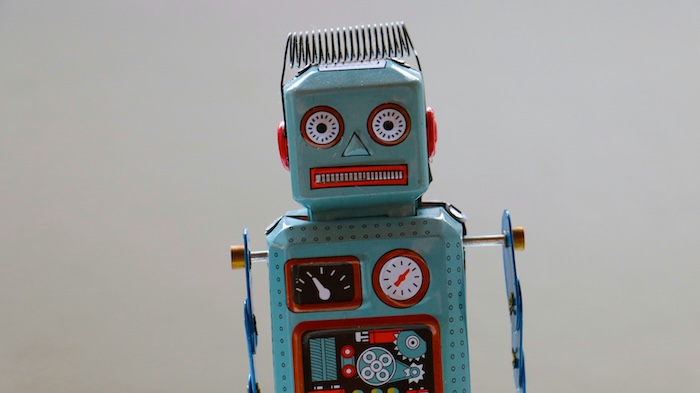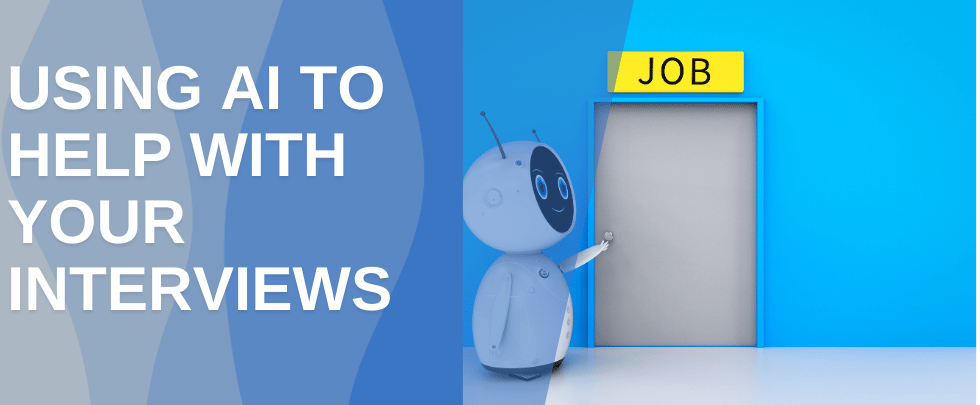In today’s digital age, artificial intelligence, AI has become an integral part of many aspects of our lives. From personal assistants like Siri and Alexa to recommendation algorithms on streaming platforms, AI is everywhere. For job seekers, AI offers new tools and resources to prepare for interviews and even assist during the interview process, but we still think that it a very controversial topic, and many companies already have taken measures to prevent candidates using AI during their interviews.
AI, like any technology, it comes with its own set of advantages and disadvantages. This article explores the pros and cons of using AI for job interview preparation and during interviews, focusing on the candidate’s point of view, with an emphasis on the potential drawbacks. Read on to get some valuable insights?
Table of Contents

Job interview AI: The Pros of Using AI in Job Interview Preparation
1. Accessibility and Convenience
AI-powered platforms are available 24/7, allowing you to practice interview questions and receive feedback at any time that suits your schedule. This flexibility is particularly beneficial for those balancing job hunting with other commitments like work or studies.
2. Personalized Feedback
Many AI tools analyze your responses to common interview questions and provide tailored feedback. This personalized approach helps you identify specific areas for improvement, such as refining your answers or improving your communication style.
3. Simulated Interview Environments
AI can simulate realistic interview scenarios, helping you become familiar with the format and types of questions you might encounter. This practice can build confidence and reduce anxiety when facing actual interviews.
4. Data-Driven Insights
AI tools often aggregate data from numerous interviews and industries, offering insights into trending topics, frequently asked questions, and key skills employers are seeking. This information can help you tailor your preparation effectively.
5. Time Efficiency
Using AI for preparation can streamline your efforts by focusing on areas that need improvement. Automated scheduling and instant feedback mean you spend less time waiting and more time enhancing your skills.
Job interview AI: The Cons of Using AI in Job Interview Preparation
While AI offers several benefits, it’s important to be aware of its potential drawbacks.
1. Lack of Human Touch and Emotional Intelligence
AI lacks the ability to fully understand and replicate human emotions and nuances. It cannot gauge subtle aspects like tone, body language intricacies, or emotional cues, which are crucial in real-life interviews.
2. Over-Reliance on Technology
Dependence on AI tools may lead you to neglect the development of interpersonal skills essential for interviews. Relying too much on scripted responses can make it difficult to adapt to unexpected questions or engage in genuine conversations.
3. Potential for Misinformation
AI systems are only as accurate as the data they’re trained on. If the AI platform is based on outdated or incorrect information, it may provide misleading advice, potentially harming your interview performance.
4. Privacy and Data Security Concerns
Using AI platforms often requires sharing personal information and recording your responses. There’s a risk that this data could be mishandled or accessed by unauthorized parties, leading to privacy breaches.
5. Cost Implications
While some AI tools are free, many advanced platforms require a subscription or payment. These costs can add up, making it an expensive resource, especially if you’re unemployed or on a tight budget.
6. Generic Feedback
AI may provide feedback that is too general or not tailored to your specific industry or role. This lack of customization can leave you unprepared for the unique aspects of certain job interviews.
7. Ethical Considerations
There are ethical questions surrounding the use of AI in personal development. Concerns include how your data is used, potential biases in the AI’s feedback, and the transparency of the AI’s algorithms.
8. Potential for Bias in AI Algorithms
If the AI is trained on biased data, it may inadvertently perpetuate stereotypes or provide unequal guidance. This bias can disadvantage you if you belong to a group that’s underrepresented in the training data.
9. Limited Scope of AI Assistance
AI tools may excel at improving technical answers but often fall short in helping you develop soft skills like empathy, active listening, and cultural fit—qualities that are highly valued by employers.
10. Reduction of Authenticity
Heavy reliance on AI can make your responses seem rehearsed or robotic. Interviewers appreciate authenticity and may be put off by answers that sound overly scripted or lack personal touch.
Job interview AI: The Cons of Using AI During Job Interviews
Some candidates consider using AI tools during actual interviews, especially virtual ones. However, this practice comes with its own set of disadvantages.
1. Technical Dependence Can Lead to Issues
Relying on AI tools during an interview can backfire if technical glitches occur. Internet connectivity issues, software crashes, or device malfunctions can disrupt the flow of the interview and reflect poorly on your preparedness.
2. Impression of Dishonesty
Using AI to generate responses in real-time may be perceived as dishonest if discovered. Employers value integrity, and relying on AI assistance during an interview can damage your credibility.
3. Distracts from Natural Communication
Focusing on AI tools during an interview can distract you from engaging naturally with the interviewer. This divided attention may cause you to miss important cues or fail to build a rapport.
4. Hinders the Display of Soft Skills
Interviews are as much about showcasing your personality and soft skills as they are about your qualifications. AI cannot replicate your unique experiences or convey your enthusiasm and cultural fit.
5. Potential to Violate Interview Policies
Some companies have strict policies against the use of external aids during interviews. Using AI tools could violate these policies, leading to disqualification from the hiring process.
Job interview AI: The Importance of Balancing AI with Traditional Preparation Methods
While AI can be a valuable tool in your interview preparation, it’s essential to balance its use with traditional methods. Engaging in face-to-face mock interviews, attending networking events, and seeking mentorship provide experiences that AI cannot replicate. These human interactions help you develop soft skills, gain industry-specific insights, and build professional relationships that could be beneficial throughout your career. Combining AI tools with traditional preparation ensures a more holistic approach to getting interview-ready.
Job interview AI: The Future of AI in Job Hunting
As AI technology continues to evolve, its influence on job hunting is likely to grow. From AI-driven resume screenings to virtual reality interviews, staying informed about these advancements can help you adapt your job search strategies. However, it’s crucial to critically assess how these technologies impact your privacy, data security, and personal brand. Being proactive about understanding AI trends will allow you to leverage new tools effectively while remaining mindful of potential drawbacks.
Conclusion
AI offers innovative ways to prepare for job interviews, providing convenience, personalized feedback, and valuable insights. However, it’s essential to approach these tools with caution. The drawbacks—such as lack of emotional intelligence, potential for misinformation, and risks to authenticity—highlight the importance of balancing technology with traditional preparation methods.
In our opinion, still nothing can beat utilizing real people’s experience in your preparation. So, head to our most popular interview guides that will give you the most needed edge in your interviews!
As a candidate, consider using AI as a supplementary resource rather than your sole means of preparation. Engage in mock interviews with friends or mentors, work on your interpersonal skills, and research your prospective employer thoroughly. Remember that while AI can help you refine your answers, it cannot replace the genuine human connection that is often the deciding factor in successful interviews.
In an era where technology is rapidly advancing, maintaining your authenticity and personal touch is more crucial than ever. Employers are not just hiring a set of skills; they’re hiring a person. By being mindful of the pros and cons of using AI in your job interview journey, you can leverage technology effectively without compromising the qualities that make you uniquely qualified for the role.


